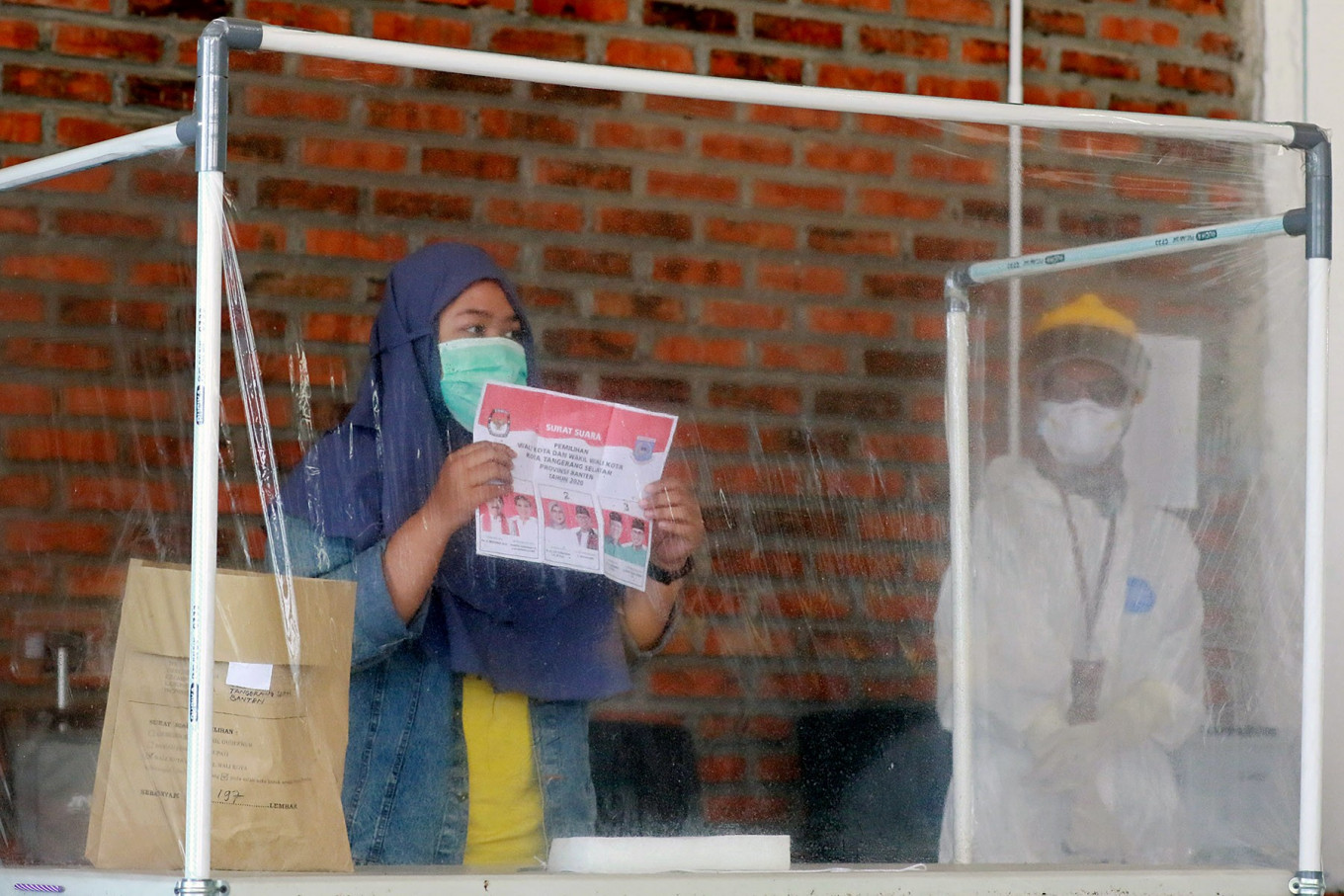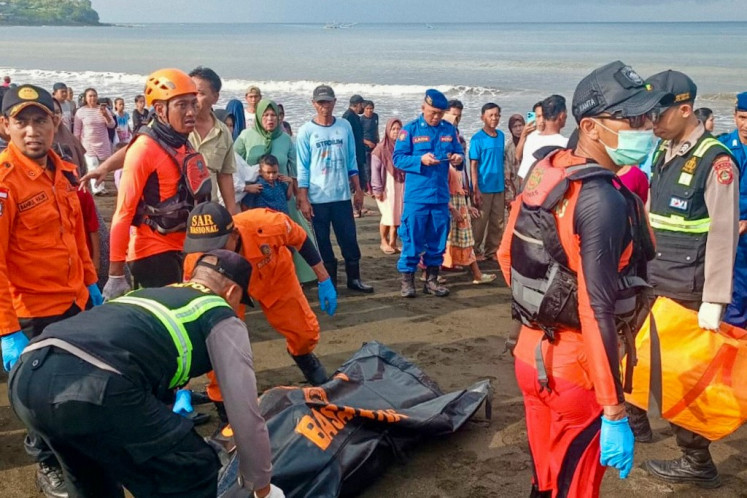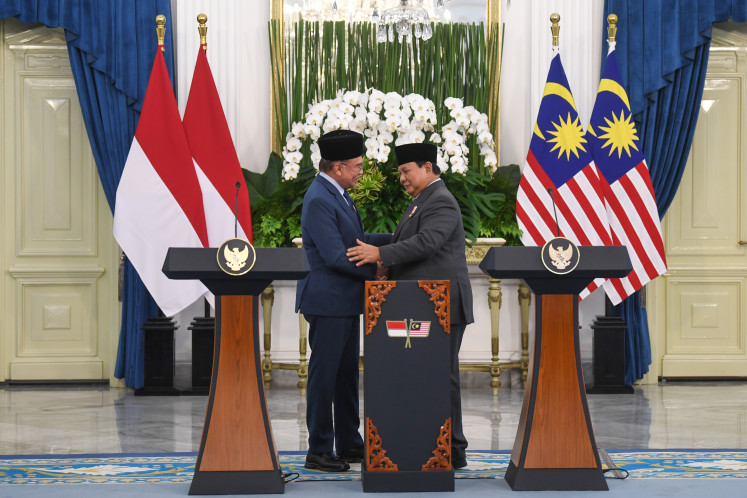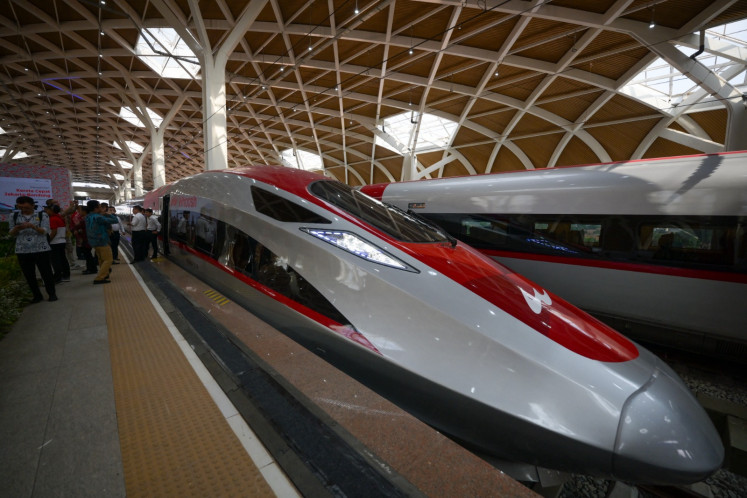Popular Reads
Top Results
Can't find what you're looking for?
View all search resultsPopular Reads
Top Results
Can't find what you're looking for?
View all search resultsFacing regional power vacuum in 2022 and 2023
Jakarta Governor Anies Baswedan will be among the regional heads who will become a “nobody” next year.
Change text size
Gift Premium Articles
to Anyone

e
xt year, President Joko “Jokowi” Widodo will be preoccupied with his international commitment as the rotary president of the world’s 20 largest economies (Group of 20), which will peak in October 2022 in Bali, where he will host the summit of the elite club. But at the same time, he will also have to exhaust his energy appointing acting governors, mayors and regents, a job that could distract his focus from the global diplomatic gathering.
I am afraid the Jokowi government is overconfident that it can fully control the regional landscape. Until now, the public remains in the dark as to how the government will manage the power vacuum resulting from the delay of regional head elections, originally scheduled for 2022 and 2023, to 2024.
Brushing aside the potential power vacuum, a senior ministry official told me “everything will be under control, and there is nothing to worry about”. The central government will appoint acting governors, mayors and regents from the bureaucracy, but I am almost certain they will face resistance from local politicians and officials because of their lack of legitimacy: They are simply appointed, not elected.
As many as seven governors 76 regents and 18 mayors will end their five-year terms next year. In 2023, 17 governors, 115 regencies and 39 mayors will follow suit. They will have to wait until 2024 to realize their reelection bid, except for those who are completing their second term.
Jakarta Governor Anies Baswedan will be among the regional heads who will become a “nobody” next year. For Anies, the new status will be challenging in his effort to maintain popularity ahead of the 2024 presidential elections, which he is expected to contest. He does not have a political party or at least an affiliation to a party. Neither does he hold any post in a national organization that would keep him in the media spotlight.
In 2023, West Java Governor Ridwan Kamil, Central Java Governor Ganjar Pranowo and East Java Governor Khofifah Indra Parawansa, who have also been touted as potential candidates for president or at least vice president, will join Anies in the jobless list. But the impact of the election moratorium will likely be less severe for the first three politicians compared to Anies.
The last regional elections took place on Dec. 9, 2020, in nine provinces, 224 regencies and 37 cities. Unlike other elected regional heads, winners of the 2020 regional elections will serve only four years because of the simultaneous regional elections to be held across the country in November 2024.
The legislative and presidential elections will be administered in the same year, but the government and the House of Representatives remain at loggerheads about the date. The latter wants to set a February date, but the former insists on a May date.
Despite the discord, both the legislative and executive powers are committed to holding completely simultaneous elections in 2029 to directly elect a president and vice president, legislative council members in regional and national levels, regents, mayors and governors.
President Jokowi can be the eventual winner in the regional power vacuum because he has the final say in the appointment of acting regional leaders. It means he controls regional politics until 2024 and he can capitalize on it to achieve his personal ambitions.
He has repeatedly denied rumors that he is seeking a third term through a constitutional amendment. We need to remember that in the Javanese custom, the more denials are made, the more the public believes the opposite. Will the President also be able to manage regional politics, which is often disconnected from national politics?
A senior Home Affairs Ministry official told me that the ministry was fully prepared to anticipate the power vacuum. Home Minister Tito Karnavian has prepared a legal and administrative mechanism to ensure that regional administrations will work normally. The government has also set a legal umbrella to fill vacant regional head posts.
The government will appoint acting officials who have full authority equal to elected mayors, regents and governors. According to the law for the acting governor post, the candidates are selected from first-echelon civil servants. They can come from the Home Ministry or other ministries and government agencies. The President will have the final say in this selection process.
Acting regents and mayors will be chosen from second-echelon officials in the local bureaucracy, with the approval of the President. In the selection process, the home minister can pick a candidate without consulting the governor.
“The appointed mayors, regent and governor are acting officials who hold full authority, rights and obligations like elected officials, including in drafting the regional budget, making policies, promoting and demoting civil servants and staff, and managing financial affairs,” Kastorius Sinaga, a special staffer to the home minister, told me in a recent conversation.
In the past, acting officials served for a short period of time, just several months. What will happen next year and in 2023 is that acting regional leaders may serve for nearly three years because the elected regional heads may be inaugurated in 2025.
No doubt the central government has prepared a strategy to handle the regional power vacuum, although it has not disclosed it clearly and openly to the public. I am just afraid the government will overlook regional politics. As the legislative and presidential elections are only two years away, President Jokowi will face a different political landscape. His ruling coalition members may distance themselves from him or even dare to challenge him in response to the regional power vacuum.
True, President Jokowi has oftentimes proven the public wrong about the government, such as its COVID-19 handling and the National Games in Papua in October. But as an ordinary citizen, I am afraid the situation in the regions can be horrifying due to the prolonged power vacuum.
***
The writer is senior editor of The Jakarta Post.









